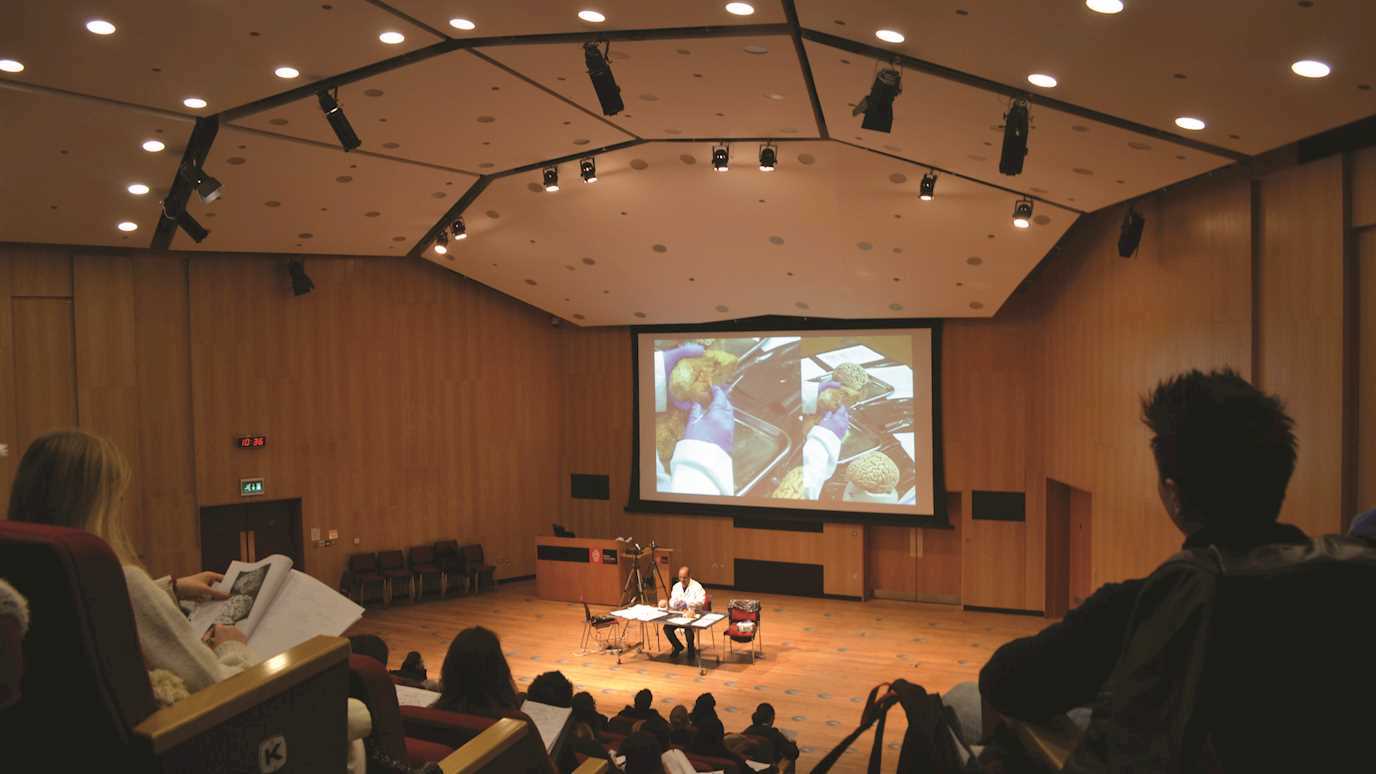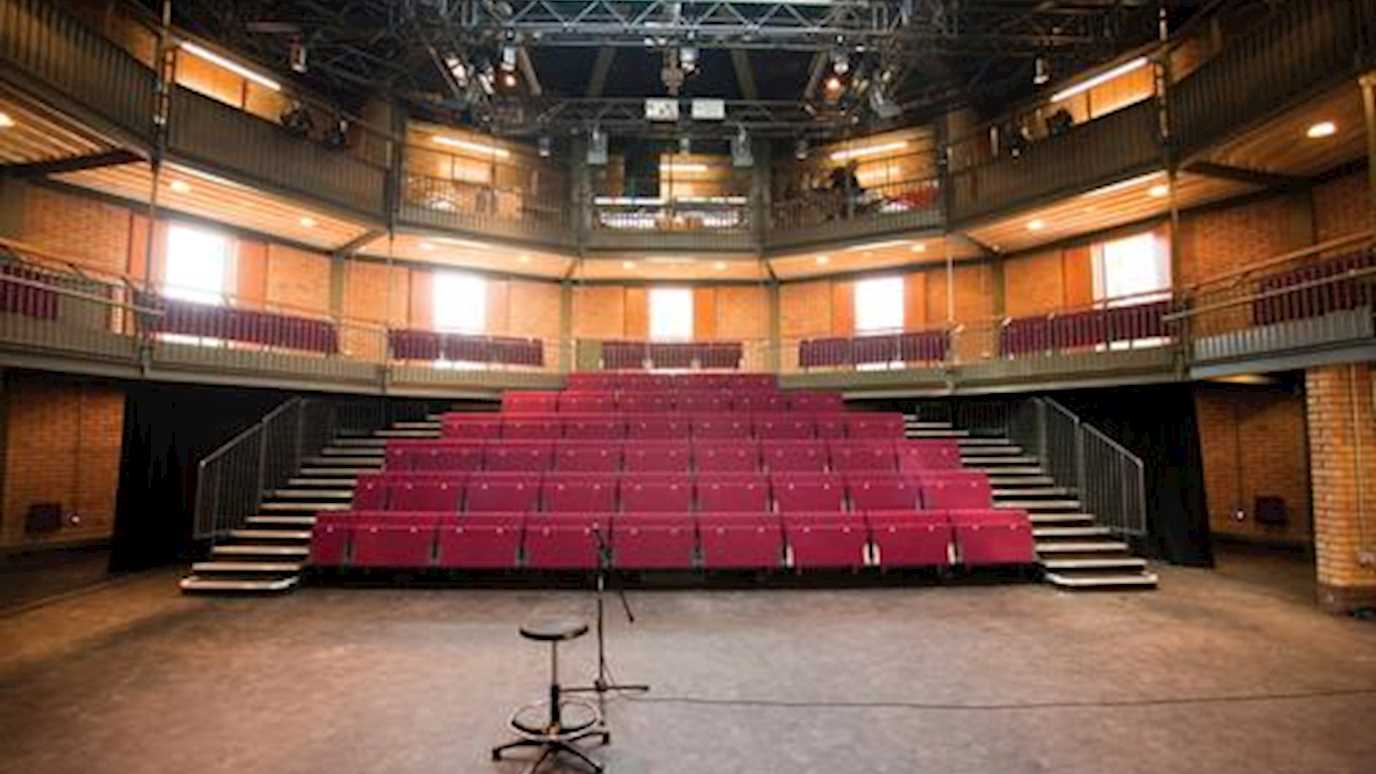Our wide-ranging and extremely influential research ranges from basic and applied psychological research in clinical and health psychology to the study of sensation, perception, cognition and motor behaviour. Take a look at what we’ve been researching recently within each of our research groups.
Language, Memory and Attention Group
The Language, Memory, and Attention Research Group focuses on cognition with a strong focus on language, as well as memory and attention. Across the group, members investigate cognitive performance from its early development in infancy and up to adulthood. The group pursues both fundamental questions such as why and how language evolved and why different languages differ from each other, and applied questions with consequences for policy such as how to teach children to read or how to make airplanes safer.
Members' interests and expertise
The link between attention and awareness; development of a perceptual-motor account of short-term serial memory and its relation to long-term sequence learning; the neurobiology of speech and language; the interplay between communication, culture and evolution; how the properties of individuals' social networks (e.g., size, heterogeneity, density) influence their linguistic skills and the process of language evolution; visual word recognition; role of vocabulary in reading; development of physical knowledge; impact of sleep and memory consolidation on learning.
The LMA group is convened by Dr Kyle Jasmin. Please see here for list of current members, publications, and projects
Social and Affective Processes Group
The Social and Affective Processes Research Group is a dynamic group of researchers employing a variety of behavioural, developmental and neuroscientific techniques to investigate social and affective processes. Members investigate a wide variety of questions, including delusions, mental health service delivery, brain mechanisms underpinning the perception of social and emotional information, social and emotional development in childhood and adolescence, motivational goals and personal values, intergroup relations, social identity, and acculturation.
Members' interests and expertise
Our interests are diverse and multidisciplinary, and include: neural and behavioural aspects of human vocal communication; neurocognitive principles governing the sense of agency and body-ownership; brain mechanisms underpinning the perception of social and emotional information in faces; social and emotional development in childhood and adolescence, particularly with regard to social identities, peer relations, and self-presentation use; motivational goals and personal values, in particular, value change; intergroup relations, social psychology of European integration, social identity (especially national or ethnic identity), acculturation, prejudice, stereotyping, and intergroup helping; Cognitive processes underlying self-report in emotional disorders; delusions, deception, self-deception, deception detection, and credibility assessment; mental health of offenders in hospitals and prisons and forensic mental health service delivery.
Sources of research funding include Bial Foundation, British Academy, Economic and Social Research Council, European Union, Experimental Psychology Society, John Templeton Foundation, Laureus Foundation, Leverhulme Trust, Nuffield Foundation, Royal Society, VolkswagenStiftung, and Wellcome Trust.
The SAP group is convened by Dr Gabriele Bellucci. Please see here for list of current members, publications, and projects.
Health and Well-being Group
Research in the Health and Well-Being Group conducts basic and applied psychological research in clinical and health psychology. Members conduct research with many clinical groups, including those with depression, anxiety, OCD, eating disorders, psychosis, autism, multiple sclerosis, chronic pain and HIV, as well as non-clinical samples. Research covers a wide range of topics, such as psychological treatments, wellbeing, cognitive abilities, social and emotional processes, and discrimination.
Members' interests and expertise
Clinical Psychology: Psychological aspects of multiple sclerosis, including cognition and emotion, natural history studies and medication efficacy; development, standardisation and validation of relevant measures. Cognitive characteristics of children with cochlear implants. Psychosocial, cognitive and affective factors in community clinical, offender and student populations associated with mental health problems such as major depressive disorder, posttraumatic stress disorder, OCD, psychosis and deliberate self-harm; future-directed thinking and its relationship to well-being and emotional disorders; cultural and religious factors affecting mental health, service provision and uptake; Children's experiences of mental health services; use of mindfulness to treat a range of psychological disorders.
Health Psychology: Psychological factors in the management of chronic diseases, including diabetes, HIV, kidney disease, degenerative diseases of the visual system, hypothyroidism and multiple sclerosis; the development, validation and use of patient-completed questionnaire measures; the health and well-being of older people; the impact of chronic disorders on children and adolescents; psychological outcomes and processes in clinical trials evaluation new treatments; application of health psychology to veterinary medicine; cognitive biases in chronic pain; the role of health care professionals in facilitating health behaviour change.
Sources of research funding include: BackCare, Bayer Healthcare, British Academy, British Council, British Psychological Society, Economic and Social Research Council, Leverhulme Trust, Medical Research Council, Multiple Sclerosis Society, National Kidney Research Fund, Nuffield Foundation, PPP Healthcare Trust.
The HWB group is convened by Dr Jessica Kingston. Please see here for list of current members, publications, and projects.
Perception, Action and Decision Making Group
The Perception, Action, and Decision-Making Group (PAD) undertakes cutting-edge research into how the human brain supports cognition, perception and action, and how these key abilities may be affected in neurological and psychiatric disorders. Using tools from neuroscience and experimental psychology, we explore a range of fundamental and applied questions, such as how zero gravity impacts cognition, how the brain constructs representations of places and events, and the interplay between decision-making and depression.
Members' interests and expertise
The PAD group has many research labs and active projects. Browse their individual sites to find out about their specific areas of research, opportunities to collaborate and more.
Dr Szonya Durant - Perceptual space and time
Dr Elisa Ferre - The role of vestibular signals in bodily perception and representation
Dr Scott Glover - The neurological underpinnings of motor imagery and joint action
Dr Stephen Hammett - Speed and motion perception
Dr Carl Hodgetts - Memory, space and events
Dr Jonas Larsson - Visual cortical mapping
Prof Narender Ramnani - The brain circuits underpinning decision-making, learning and the cognitive control of action -
Dr Nura Sidarus - Metacognition and decision-making
Dr Petra Vetter - Top-down influences on early vision
Prof Robin Walker - How the brain controls eye movements
Prof John Wann - The neural aspects of perception for action
Prof Johannes Zanker - Human visual information processing
We would like to thank the following funders for supporting our research: Bial Foundation, British Academy, Economic and Social Research Council, European Union, Experimental Psychology Society, John Templeton Foundation, Laureus Foundation, Leverhulme Trust, Nuffield Foundation, Royal Society, VolkswagenStiftung, and Wellcome.
The PAD group is convened by Dr Carl Hodgetts. Please see here for list of current members, publications, and projects.
South East Research Network for Schools
Our aim is to bring together researchers and practitioners to maximise the impact of research on practice within schools and improve outcomes for children and young people. To learn more about SERNS, current projects and events click here.
CUBIC
CUBIC is a Magnetic Resonance Imaging facility for the investigation of sensory and cognitive brain function, located at Royal Holloway, University of London. It operates a research-dedicated 3T MRI scanner and is owned and run jointly by Royal Holloway University of London, Brunel University, Roehampton University and University of Surrey. To learn about CUBIC click here.
Real World Eye-Tracking
The Real World Eye-Tracking course can provide hands-on experience, all stages of eye-tracking research. you can gain experience the latest technology across multiple platforms and benefit from the experience of academic and commercial practitioners. For more information please click here.























